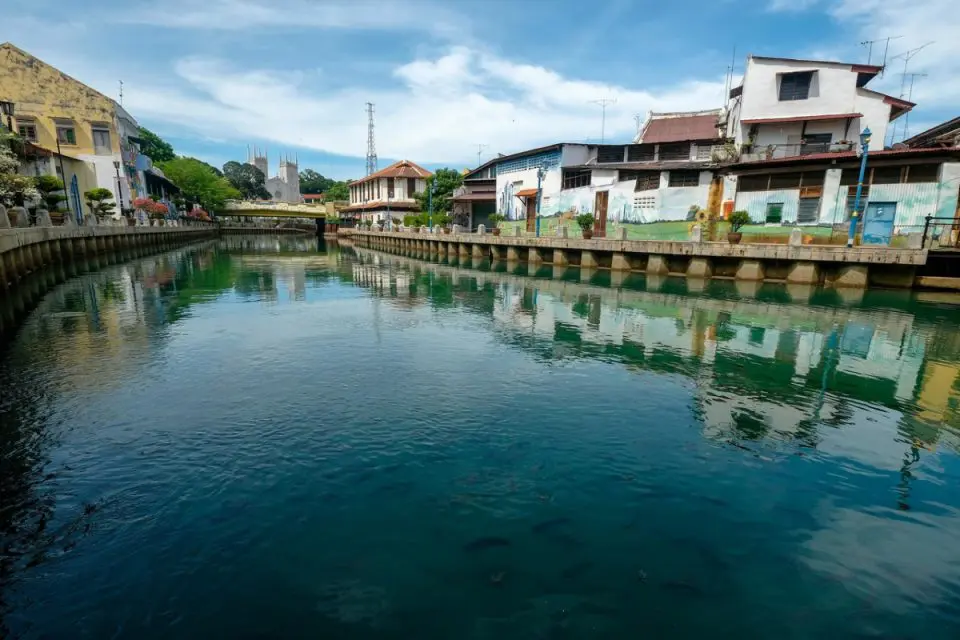KUALA LUMPUR, April 27 — Lockdowns and restrictions on movements and activities across the globe have done the environment a world of good.
In Malaysia, Minister of Environment and Water Datuk Tuan Ibrahim Tuan Man was recently quoted as saying that the air quality in several locations nationwide, including Cheras, Putrajaya, Shah Alam, Ipoh, Penang, Kuantan, Seremban, Johor Bahru and Kota Kinabalu had shown improvements even as early as the first phase of the movement control order (MCO).
The first phase of the MCO, enforced by the government to curb the spread of Covid-19, was from March 18-30, following which it was extended to the second and third phases. The third phase will end tomorrow and the MCO will go into its fourth phase from April 29 to May 12.
Healthy Air Pollution Index readings will prevail as long as there are fewer vehicles on the road and factories remain closed.
Once the MCO is lifted, it will be back to the usual routine of traffic congestion, open burning and factories in full operational mode, all of which spew out polluting gases such as carbon monoxide, sulphur dioxide and nitrogen dioxide into the atmosphere.
Environmentalists have declared that the Covid-19 pandemic – that has infected over two million people and caused over 160,000 deaths worldwide – is due to the greed of humans who left the earth to take a battering.
Their claims may hold some truth. True or not, the pandemic’s environmental impact should be an eye-opening lesson for all to be more sensitive in caring for Mother Nature.
The lesson humans are now learning is that the drastic measures, such as social distancing and limiting outdoor movements and activities, put in place by nearly 200 countries and territories are benefiting the natural environment.
Not only the province of Hubei in China — the first epicentre of Covid-19 — but also nations in Asia and Europe have reported a sharp reduction in air pollution levels. It is as if the earth is finally getting a well-deserved rest and is healing.
India, whose large cities are some of the most polluted in the world, has been seeing some remarkable changes. It has been reported that for the first time in 30 years, people in many towns in the state of Punjab can see the snow-capped peaks of the Himalayas, thanks to the very recent improvement in air quality. The Indian government has imposed a lockdown since March 24 to control the transmission of Covid-19.
Recent data obtained via satellite by the Royal Netherlands Meteorological Institute showed an obvious drop in the average nitrogen dioxide concentrations over Europe from March 13 to April 13 this year against the same period last year.
Paris (France) saw a dramatic drop of 54 per cent while Madrid (Spain) and Milan and Rome (Italy) saw decreases of around 50 per cent.
Sharing his views, senior lecturer at Universiti Kebangsaan Malaysia’s Department of Earth Science and Environment Dr Shahrul Mohd Nadzir, who is also an air quality expert, said the cleaner air resulting from the restricted movements is proof that the government must seriously look into reducing carbon emissions from industries and vehicles after the MCO is lifted.
He said an analysis of the readings of the air quality sensors owned by the Petaling Jaya City Council revealed a drop in pollutants released into the air in Petaling district – carbon monoxide reduced by 50 to 60 per cent while suspended particulate matter tapered down by 20 to 30 per cent.
“The concentration of air pollutants has been dropping sharply throughout the MCO period. Even though the authorities have in the past introduced car-free zones to reduce pollution, it has not been as effective as the MCO,” said Shahrul.
In order to keep carbon dioxide emissions low, he urged the people to use public transport and environmentally-friendly vehicles after life returns to normal post-MCO.
Industries too should strictly comply with the laws and regulations set by the Department of Environment and local authorities to ensure that their operations do not pollute the environment.
“The annual haze and incidents such as the polluted river in Pasir Gudang (Johor) have had an impact on our nation. We should strive to maintain the clean air that we are enjoying now (during the MCO) for the sake of our future generations,” he added.
Not only has the air quality improved but the rivers are also looking healthier now. Sections of Sungai Klang that flow through Kuala Lumpur have cleaner water now but this can be attributed to the temporary stop in construction activities. Sediments from construction works are among the main culprits that cause river water to turn murky.
However, on the flip side, clinical waste – comprising used gloves, face masks and disposable attire – generated in March increased by 27 per cent. In February, it increased by 17 per cent, according to the Environment and Water Minister.
Sadly, a lot of clinical waste is being dumped into rivers; whilst cleaning up the 120-kilometre-long Sungai Klang, workers scooped up lots of used masks, gloves and even small empty sanitiser bottles.
Water quality expert Dr Zaki Zainuddin, meanwhile, expressed his concern that the environment might take a battering once again when industries resume operations after the MCO has ended.
Pointing out that they may maximise their operations to recoup their losses, he said the resulting pollutants might “give a shock to the environment”. This will not only happen in Malaysia but all over the world too and pollution levels may go haywire.
Zaki suggested that industries be allowed to operate in stages to mitigate the impact of their operations on the environment.
The world has seen how the earth can heal itself when human activities diminish. The time has come for all of us to do our part to preserve our environmental ecosystems through sustainable practices and development.
— Bernama





